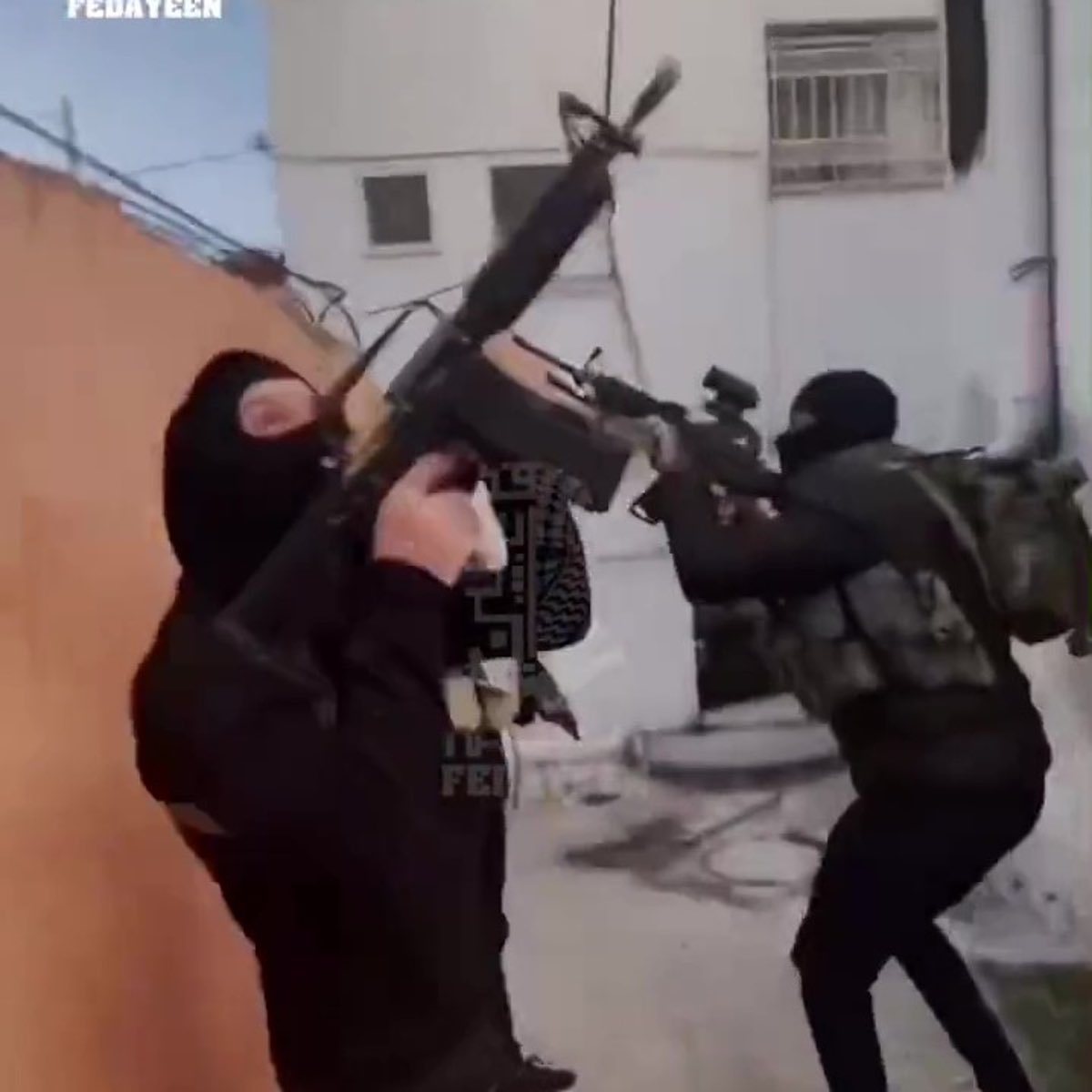(JNS) A firefight broke out between Israel Defense Forces troops and Palestinian terrorists during a rare daytime military operation in Jenin on Sunday.
The clash broke out during the arrest of Jibril Zubeidi, the brother of jailed Al-Aqsa Martyrs’ Brigades terrorist leader Zakaria Zubeidi. Zakaria was formerly the head of the Jenin branch of the terrorist group, which is affiliated with Palestinian Authority chief Mahmoud Abbas’s ruling Fatah faction.
Zubeidi turned himself in after soldiers arrived at the building where he was staying, the IDF said. Israeli forces fired at armed men during the operation, who returned fire, according to the military.
Palestinians threw improvised explosive devices and stones at the troops.
Two Palestinians were reported wounded in the exchange; no Israeli soldiers were injured.
The IDF said Jibril was an operative in the Fatah-linked Tanzim terrorist group who was planning attacks against Israelis and was involved in the November seizure of the body of Israeli Druze Tiran Firo from a Jenin hospital.
Firo had entered Jenin via the Gilboa crossing together with a friend to get his car repaired. He was severely injured in a car accident and hospitalized in Jenin, where he underwent surgery. According to the IDF, he soon died of his injuries.
Soon afterwards, dozens of Palestinian gunmen stormed the hospital, seized the body and issued demands for the release of the corpses of terrorists.
Firo’s body was quickly returned following efforts of Israeli security forces acting in coordination with Palestinian counterparts and the Palestinian Authority.
Late last year, the IDF killed Al-Aqsa Martyrs’ Brigades member Naeem Zubeidi, a cousin of both Zakaria and Jibril, during an arrest raid near Jenin.
The IDF last conducted a daytime raid in Jenin in late January, when forces thwarted a major terror plot from moving ahead.
That plot, according to security sources, involved a Palestinian Islamic Jihad attack against Israelis to be carried out in the immediate future.
An IDF spokesman noted at the time that most security operations in Judea and Samaria take place at night, to reduce what the military describes as “friction”—meaning reducing the chances of gun battles and clashes with gunmen and residents.

